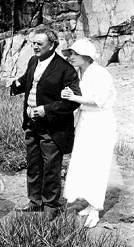1917 in film was a particularly fruitful year for the art form, and is often cited as one of the years in the decade which contributed to the medium the most, along with 1913. Secondarily the year saw a limited global embrace of narrative film-making and featured innovative techniques such as continuity cutting. Primarily, the year is an American landmark, as 1917 is the first year where the narrative and visual style is typified as "Classical Hollywood".
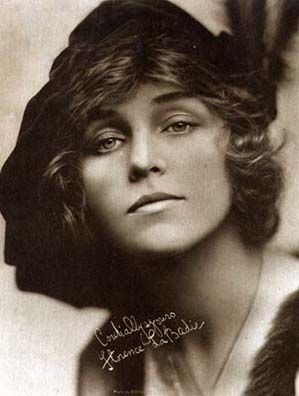
Florence La Badie was an American-Canadian actress in the early days of the silent film era. She was a major star between 1911 and 1917. Her career was at its height when she died at age 29 from injuries sustained in an automobile accident.

The Thanhouser Company was one of the first motion picture studios, founded in 1909 by Edwin Thanhouser, his wife Gertrude and his brother-in-law Lloyd Lonergan. It operated in New York City until 1920, producing over a thousand films.

Francesca Bertini was an Italian silent film actress. She was one of the most successful silent film stars in the first quarter of the twentieth-century.

Marguerite Snow was an American silent film and stage actress. In her early films she was billed as Margaret Snow.
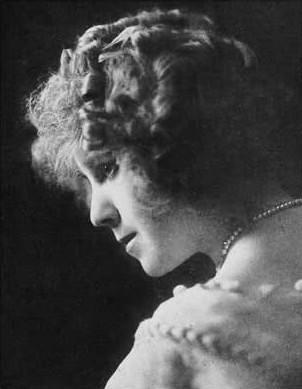
Mignon Anderson was an American film and stage actress. Her career was at its peak in the 1910s.

Harry Benham was an American silent film actor.
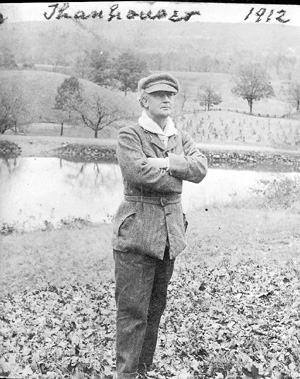
Lucius Junius Henderson was an American silent film director and actor of the early silent period involved in more than 70 film productions.

Eugenie Besserer was a French-American actress who starred in silent films and features of the early sound motion-picture era, beginning in 1910. Her most prominent role is that of the title character's mother in the first talkie film, The Jazz Singer.

Fritzi Brunette was an American actress.

William Russell was an American actor, film director, film producer and screenwriter. He appeared in over two hundred silent-era motion pictures between 1910 and 1929, directing five of them in 1916 and producing two through his own production company in 1918 and 1925.

Gertrude Homan Thanhouser, wife of co-founder Edwin Thanhouser, worked at the Thanhouser Company film studio as actress, scenario writer, film editor, and studio executive. Her efforts made the studio one of the key independent US film studios in the nickelodeon and transitional era, praised for its erudite adaptations of Shakespeare and other "classical" stage dramas to the screen.

The Million Dollar Mystery is a 23-chapter film serial released in 1914, directed by Howell Hansel, and starring Florence La Badie and James Cruze. It is presumed lost.
Lila Hayward Chester was an American actress.

Herbert Standing was a British stage and screen actor and the patriarch of the Standing family of actors. He was the father of numerous children, many of whom had careers in theatre and cinema. Toward the end of his life, he appeared in many Hollywood silent films.

The Star of Bethlehem is a 1912 American silent film produced by Edwin Thanhouser and Charles J. Hite, and featuring Florence La Badie, James Cruze, and William Russell. The film is a retelling of Biblical events preceding the Nativity of Jesus. Directed by Lawrence Marston, the entire film is staged as brief tableaux. With much of the original lost, the existing footage can be difficult to interpret as a coherent whole.

A Dog's Love is a 1914 American short silent fantasy drama film with subtitles, directed by Jack Harvey on his directorial debut. It stars Shep the Dog, Helen Badgley, and Arthur Bauer. The film is about a dog who loses his best friend, when a young girl is killed in an automobile accident, and focuses on his emotions in dealing with his loss. Well-received because of its "universally appealing" theme, the dog's emotions were reported as surpassing the child's histrionics.

Adrift in a Great City is a 1914 American silent short drama produced by the Thanhouser Film Corporation that stars Florence LaBadie. The film begins with Pat Moran who pays for the passage of his wife and daughter to join him in America, but he is seriously injured on the way to greeting them. Left by themselves, the daughter works in a sweatshop and goes blind, forcing her and her mother to become beggars. By pure happenstance, the blind girl wanders to the hospital where her father is recovering and tells her story to a doctor. The father recognizes the girl as his daughter and the family is reunited, and the doctor confirms her blindness can be cured. The film was reviewed negatively by critics for its poor scenario, settings and technical execution. The film is presumed lost.
Her Life and His is a 1917 American silent drama film directed by Frederick Sullivan and starring Florence La Badie, Holmes Herbert and Ethyle Cooke.
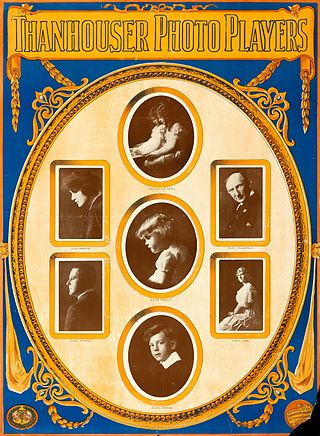
Miss Robinson Crusoe is a 1912 silent film romance-adventure produced by the Thanhouser Company starring Florence LaBadie and James Cruze. The narrative scenario is derived from Daniel Defoe's 1719 adventure novel Robinson Crusoe.

